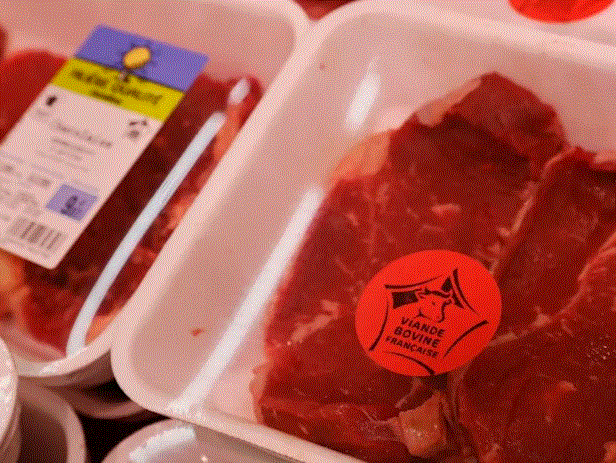The European Union is to invest €2m into a scientific project that is developing cultured beef for commercial markets.
Under a Covid recovery plan that was set up by the European Commission last year, known as React-EU, the funding has been granted to two Dutch food firms – Nutreco and Mosa Meat – which are attempting to lower the costs of growing meat in vitro.
The programme will fund research and development to find the best combination of amino acids, vitamins and minerals to include in the culture media to help promote the natural growth of muscle cells taken from a cow.
It’s hoped this work will be able to move cellular agriculture away from a dependency on pharma-grade products towards natural ingredients which cost less and are more sustainable, making production more commercially viable for European markets.
Research shows that cultivated beef production is projected to reduce climate impact by 92 per cent, air pollution by 93 per cent, use 95 per cent less land and 78 per cent less water compared to industrial beef production.
And a major study published last month found that the global production of food is responsible for a third of all planet-heating gases emitted by human activity, with the use of animals for meat causing twice the pollution of producing plant-based foods.
Peter Verstrate, co-founder of Mosa Meat, said the European Commission’s grant was “validation” of the development of cellular agriculture.
He estimated that their research could lead to cost reductions “in the order of 100 times”. He added: “Support from the government is a great contribution in bringing cultivated beef to the European market.”
Mr Verstrate emphasised that the beef is not produced in a lab, but a “brewery-like environment,” adding that the product has “to give consumers the same experience that meat does at a competitive price, with the important addition of being sustainable”.
He explained that the beef cells “we grow are the same you’d find in the muscle of a cow.” Known as stem cells, they “serve as a repair kit” for the body. “If you rupture your muscle, they are the cells that in various steps turn into muscle tissue,” said Mr Verstrate.
“We mimic that biology outside of the animal. We’re trying to better understand this process and utilise it.”
After the cells have been taken from a healthy animal, which isn’t killed in the process, they are placed in a large stainless-steel tank called a cultivator where it is fed nutrients until it divides and grows.
The cells are also given growth factor components, which are signals that tell it what to do. The process takes two to three weeks depending on the type of meat being produced.
Together, Nutreco and Mosa Meat are aiming to deliver the highest yields in cultured beef with the lowest environment impact.
“As we strive to feed a growing population in a safe and sustainable way, we will need to utilise a variety of new and emerging protein production methods alongside traditional farming,” said Fulco van Lede, CEO of Nutreco.
“I’m thrilled that we have received the funding as this allows us to develop inputs for the cultivated meat industry to produce sustainably.”
The React-EU package (Recovery Assistance for Cohesion and the Territories of Europe) was first established in December last year.
It has set aside €50.6bn in funding for countries across the continent to adopt a greener and more sustainable economic recovery in response to the Covid-19 pandemic.














